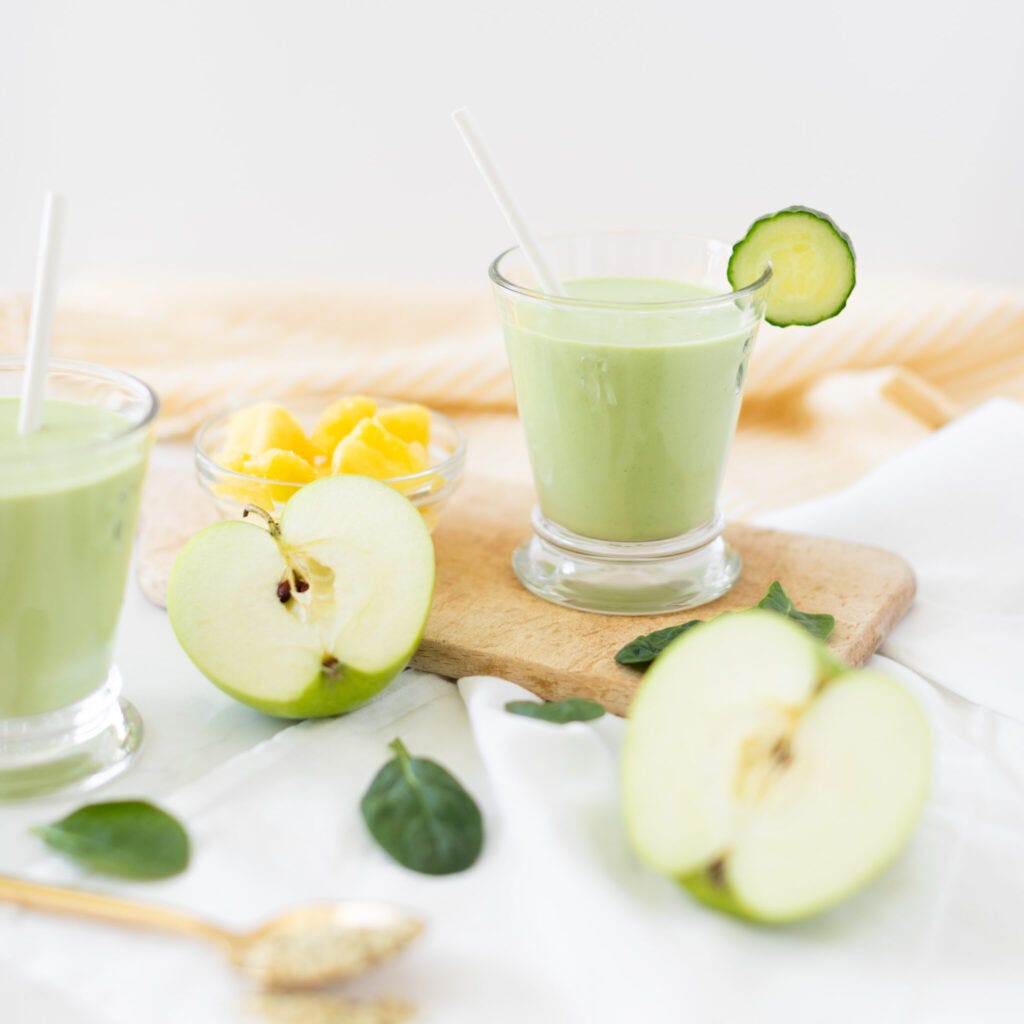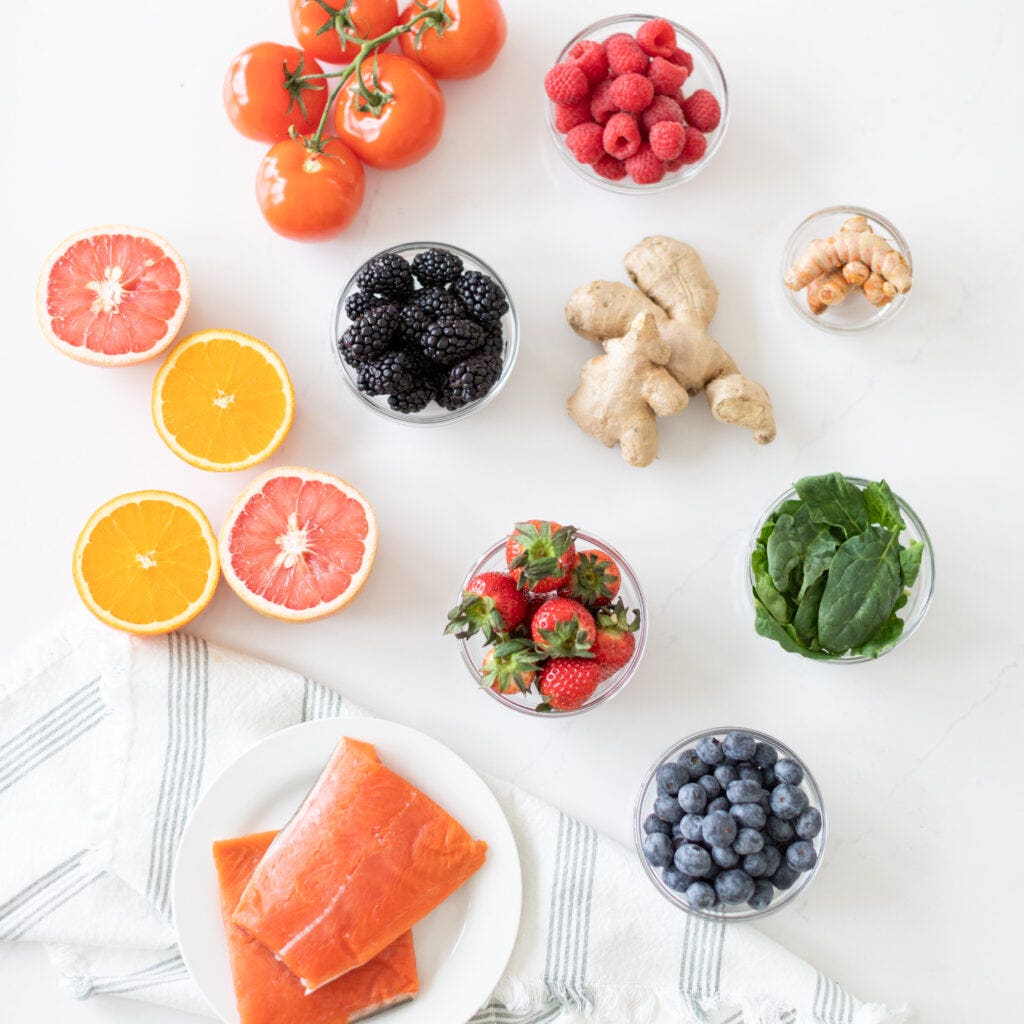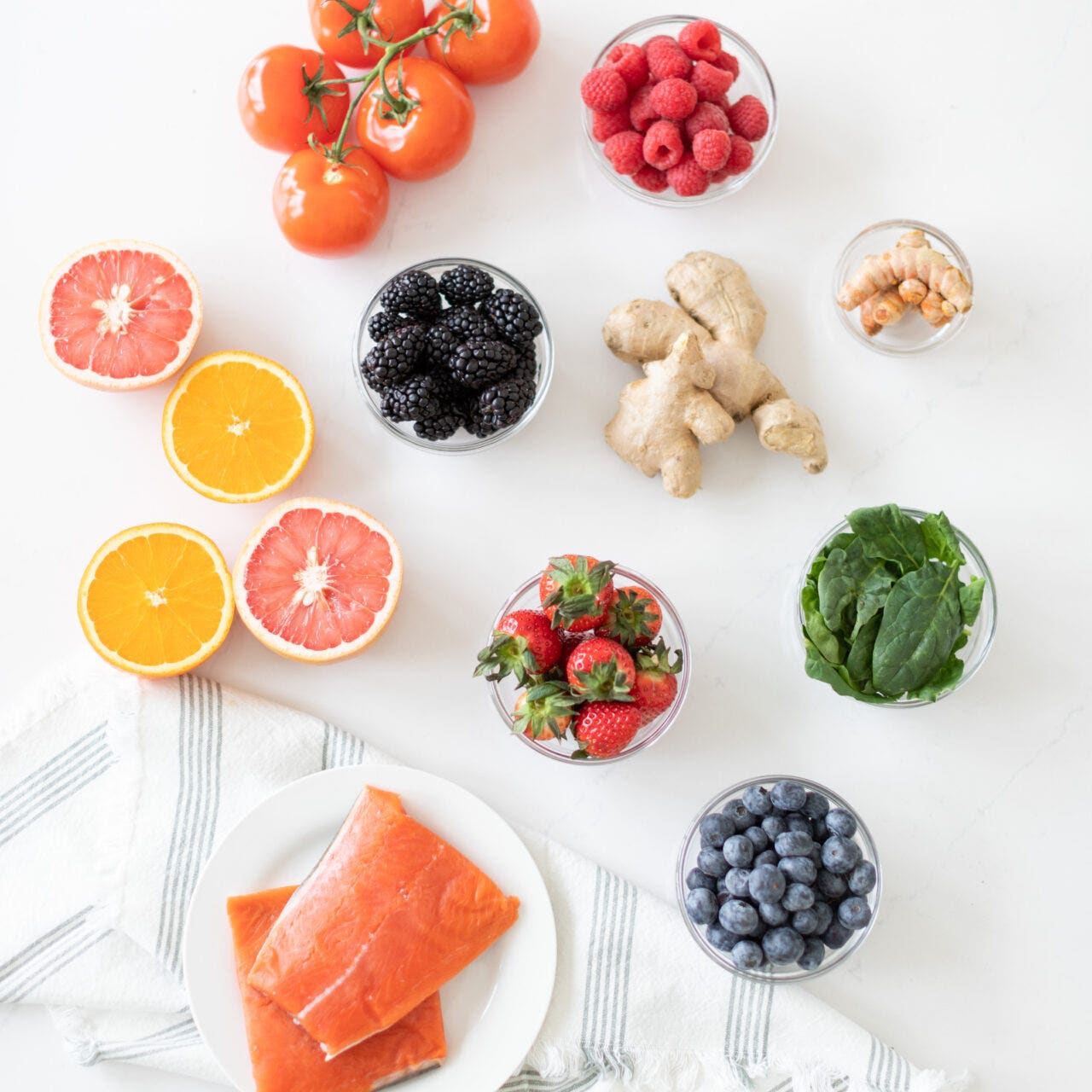You have probably heard the saying “you are what you eat” and that is quite literally true when it comes to the brain. Just like for our bodies, food is fuel for our brains. This makes sense when you consider the brain is made up of water, fat, and protein and consumes the most energy (20-25%) of any organ in our bodies.
So, if you are wondering if food can really boost your mood, the short answer is yes! What we eat affects how we feel, just like how we feel can affect what we eat. Nutrients from food provide the building blocks and fuel for our brain to function at its best and regulate our mood.

Simple Strategies for Boosting Your Mood:
1. Don’t let yourself get “hangry”.
- Ever had a day where you get so busy you realize it’s been hours since your last meal or snack? You probably felt pretty hangry (at least I would!). Try eating balanced meals and snacks every 3-4 hours to prevent large dips in energy by stabilizing your blood sugars.
- Try preparing some packable snacks for on-the-go like these Lemon Poppyseed Energy Bites or Lunchbox Apple Oat Bars.
2. Hydrate, Hydrate, Hydrate!
- Staying hydrated is a good idea for so many reasons, your mood being one of them. Our brains are made up of 75% water so letting yourself get dehydrated can negatively affect your memory, mood, and attention.
- Fun fact: food can contribute to meeting your hydration goals! For example, fruits and veggies have high water content. Find fun ways to stay hydrated like these Orange Creamsicle Breakfast Popsicles or these Re-Fraiche Smoothies.
3. Find a Balance with Caffeine
- Don’t worry, we aren’t going to tell you to kick your morning coffee habit. Coffee and tea have been linked to reduced depression risk; likely due to compounds like polyphenols they contain that benefit brain health. It is important to note that caffeine though when consumed in high amounts, can have the opposite effect, and is best consumed in moderation (ideally no more than 2 cups a day).

Eating for Better Mood
1. Fall in Love with Fruits and Veggies.
Fruits and veggies, including green leafy vegetables and berries, offer a wide variety of vitamins and minerals our brains need for a positive effect on mental health, as well as gut-friendly fiber. Aim for at least 5 servings of fruits and vegetables per day. This Hearty Veggie Lasagna is a great option for packing in extra veggies in a meal.
2. Get Enough Protein.
Protein is specifically important because it is made up of amino acids, which are used by the brain to make important chemicals called neurotransmitters that regulate our mood. Boost the protein in your snack game with these Veggie Packed Egg Bites.
3. Enjoy Healthy Fats.
Our brains contain the highest level of fat out of any of our organs. Getting enough healthy fats, including a balance of omega 3 and omega 6 fats, like those found in avocados, nuts, seeds, fish, and seafood is important to maintain the structure and function of our brains. Omega-3 fats EPA and DHA (specifically found in fatty fish like salmon, trout, and mackerel) help decrease inflammation and protect the brain from damage which is important for mental health and mood. From Tropical Fish Tacos to Air Fryer Salmon Cakes, access a variety of fish and seafood recipes by simply searching the word fish in our Fraîche Table recipe library.
4. Carbs are not the enemy.
Getting enough carbohydrates, specifically those high in fiber is also important for mood regulation. This is because they help get serotonin and tryptophan to our brains. Fiber-rich carbohydrates with a lower glycemic index like whole grains are more beneficial for lasting energy and mood. Start your morning off right with whole grain oats in this Peanut Butter & Jelly Oatmeal or Key Lime Pie Overnight Oats.

While more research is needed, some specific patterns of eating have also been linked to better mental health. The Mediterranean diet is well known for its link to improving depression symptoms and helping prevent depression. It includes enjoying fruits and veggies, legumes, nuts and seeds, whole grains, fatty fish, poultry, and olive oil daily as well as some fermented dairy products, and small amounts of wine and meat. The MIND Diet (A combination of the Mediterranean and DASH diet) has also been associated with a reduced risk of anxiety and depression. Both dietary patterns include a variety of the nutrients discussed above.
While there can be many factors that affect our mental health including lack of sleep, genetics, stress, environment, and mood disorders, it is clear that our dietary choices and the nutrients they provide are a key piece of the puzzle for better mental health.

